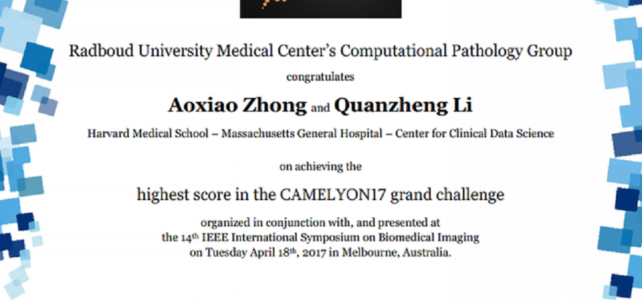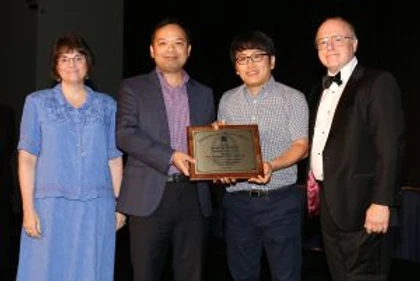After fierce competition, our group has been selected as one of the prestigious Nvidia Global Impact award finalists (4 finalists in total). The NVIDIA Global Impact Award provides $200,000 for groundbreaking work that addresses the world’s most important social and humanitarian problems. The 2018 awards will go to researchers or institutions using NVIDIA technology to achieve breakthrough results with broad impact.
Modeling with Artificial Neural Network Helps Improve Image Quality for Low-Dose CT
Researchers propose novel reconstruction method that trains artificial neural network with normal-dose CT images.
Improving PET Quantitation with Denoising, Motion Compensation, and Deblurring
This article was published in the Nuclear & Plasma Sciences Society newsletter of September 2017.
Our group won the first place in the CAMELYON17 grand challenge

Digital pathology, is a new, rapidly expanding field in medical imaging in which whole-slide scanners are used to digitise glass slides at high resolution (up to 160nm per pixel). The availability of whole-slide images (WSI) has garnered the interest of the medical image analysis community, resulting in increasing numbers of publications on histopathologic image analysis.
American Association of Physicists in Medicine Award

Congratulations to Quanzheng Li, PhD and Kyungsang Kim, PhD, who won the Low Dose CT Grand Challenge, hosted by the American Association of Physicists in Medicine (AAPM).
IEEE-NPSS Early Achievement Award for outstanding achievement
Quanzheng Li, Ph.D., received the IEEE-NPSS Early Achievement Award for outstanding achievement to the field of medical imaging science, “for contributions to the development of a MAP framework for iterative image reconstruction on static, dynamic, parametric and TOF PET, and its application in whole-body dynamic imaging and computer-aided detection.”